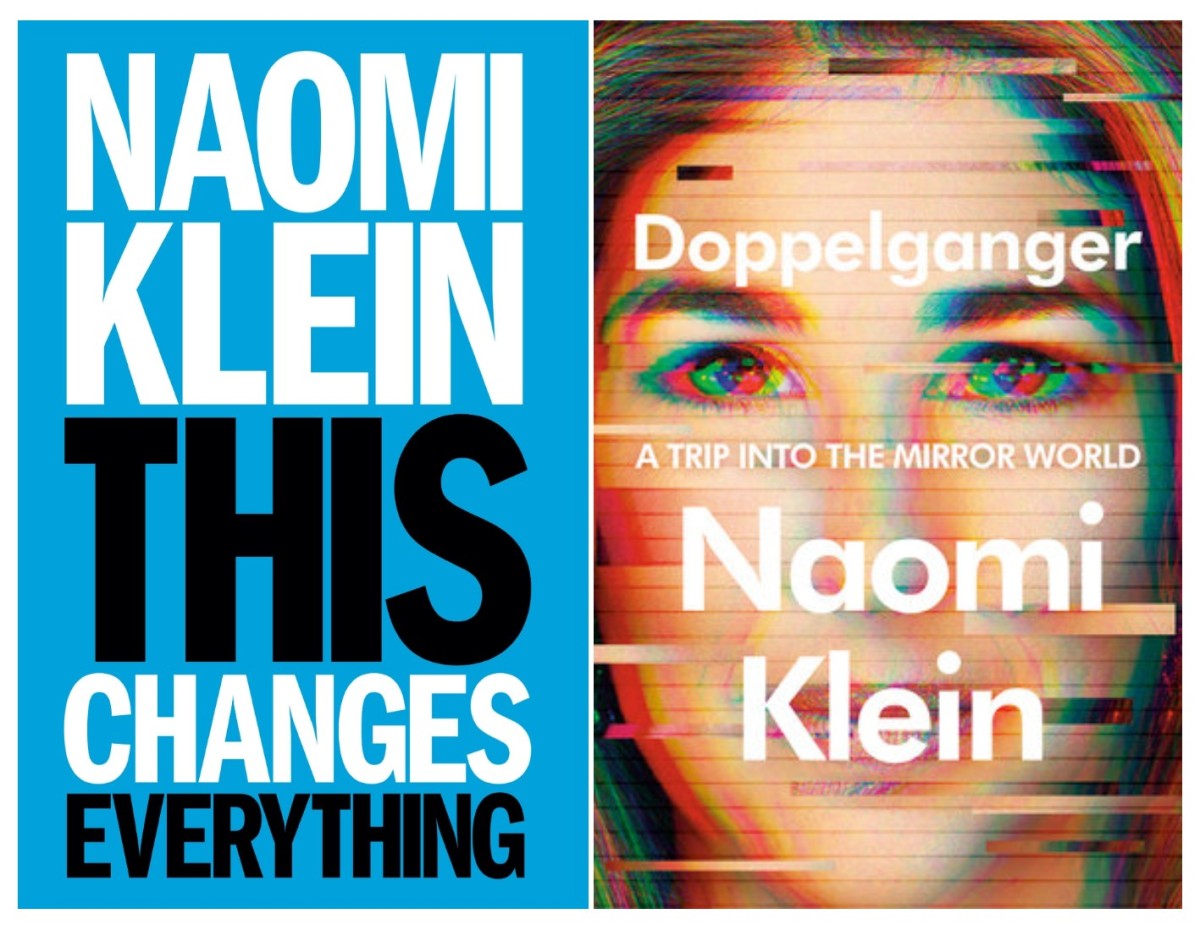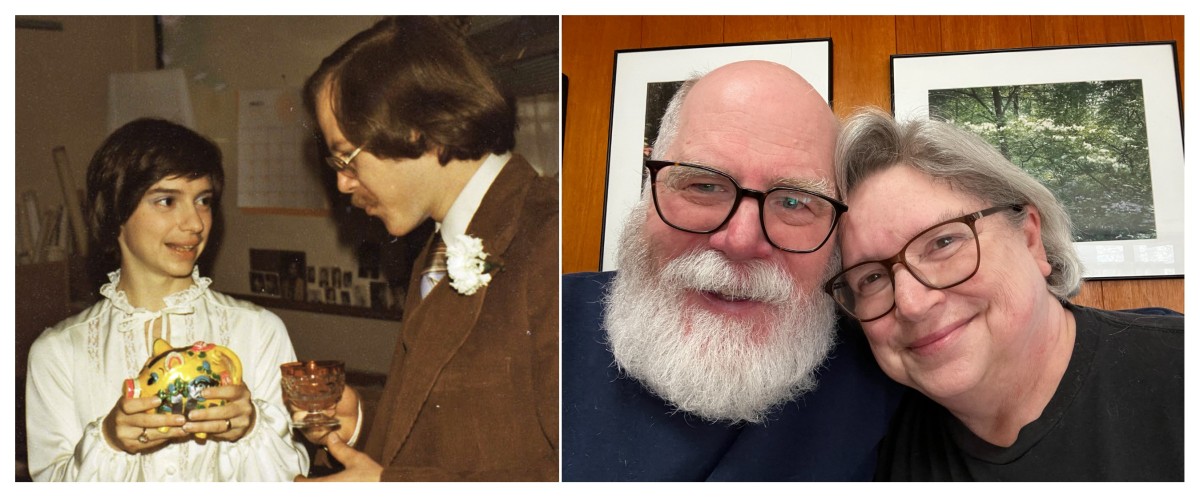by James Wallace Harris, 4/8/24
Susan and I celebrated our 46th wedding anniversary on March 26th. To commemorate the event, I’ve given myself the task of remembering all the TV shows we’ve watched together over the last 46 years. What’s been bugging me since 5:05 AM this morning has been trying to remember all the TV sets we watched all that TV on.
I can visualize the five apartments and two houses where we watched television. I can visualize the six cars we’ve owned over those forty-six years, but I can’t remember what the TV sets looked like from the early decades of our married life together. Obviously, we stared at them for hours a day so why can’t I remember what they looked like? I’ve checked my photos and can’t find any physical documentation. The first TV I can remember buying together was sometime after the year 2000 and it was a 36″ RCA monster of a CRT.
What’s funny is I can vaguely recall the TV stand we had when we first got married, a cheap aluminum affair on wheels. I assume we started off married life with a 19″ set I had owned as a bachelor. I just have no memory of it. I think we eventually bought a 25″ set, but it wasn’t a console. Just no memory whatsoever. I do remember that one of our first big purchases together was a VCR. We paid $800 around 1979. Susie used it to record soap operas to watch after work.
I believe we had cable TV at the beginning of our marriage because I just don’t remember using rabbit ears. And we had HBO before 1981 when MTV began, because I remember HBO playing music videos between movies and I loved them. That’s why I was so excited when MTV came out.
I enjoy challenging my memory with a specific task like this essay. And I’ve found that a fantastic way to trigger memories is to find an external anchor. I think the first show I can remember us watching together was I, Claudius on Masterpiece Theater. Wikipedia confirms that I, Claudius ran in Season 7 1977-1978. Since we met in July of 1977, that means my vague memory might be right.
My next memory is we watched the original All Creatures Great and Small Together. Wikipedia confirms it came out in 1978. However, I thought it came out on Masterpiece Theater, and Wikipedia nixes that idea. I also thought we were big fans of Masterpiece Theater, but Wikipedia reveals Susan, and I didn’t watch another series on that program until 1990 with Jeeves and Wooster. Looking over that Wikipedia page reveals we didn’t become big Masterpiece fans until Season 38 (2008) when they ran all the Jane Austen stories and have seen many of the shows since Masterpiece Theater was renamed Masterpience Classic. We really loved Downton Abbey starting in 2011. However, that might have been me, and not Susan. Thinking about it now, I think Susan was a latecomer to Downton Abby.
It’s funny how memories can be deceiving.
If we weren’t watching hi-brow shows, what else were we watching? I remember we both became addicted to MTV when it came out in 1981. Luckily, Wikipedia has pages for all the American TV seasons starting with 1945. I’ll use it as my memory crutch to recall our married life television viewing together. I’m only trying to remember what we watched together.
The first memory of the 1977-1978 schedule made me recall is Happy Days. Susan and I weren’t fans of that show, but I remember going over to her parents’ house and telling them we were getting married while they were watching Happy Days. (I was left alone with her dad to watch Happy Days while Susan’s mother took her in the back to ask if she had to get married.) The shows from that season that I remember Susan and I loving were Barney Miller and Soap.
For the 1978-1979 season we added Mork & Mindy, WKRP in Cincinnati, and Taxi to our watch list. This makes me remember that Susan and I loved sitcoms when we first got married. Normally, we went out a lot. We loved eating out at cheap places, or going to the mall, or the movies. I don’t think we watched a lot of TV in the early years.
In the 1982-1983 season we added Cheers on Thursday night on NBC. Taxi also moved to that night, and it became the early version of Must See TV on NBC on Thursday nights.
The 1984-1985 season added The Cosby Show to Must See TV night. Family Ties and Night Court also moved that time slot, so we had two hours of sitcoms.
Seinfeld started in the Summer of 1989. We loved that show.
Starting in the 1989-1990 season we added Roseanne to our list of sitcoms we tried to always catch. However, on Thursday nights in 1988, Must See TV was broken up and it got worse in 1989.
Looking over the schedules reveals something that conflicts with my memory. I thought we were TV addicts and watched all kinds of TV shows. But the schedules showed that for most nights there was nothing that we watched together, and I didn’t watch on my own. That makes me remember how often we went to the movies or rented videos.
I remember one time at Blockbusters they told us we had rented 794 movies. So, thinking about it, maybe Susan and I weren’t the TV fans I thought we were. But on the other hand, we loved buying the TV Guide every week. I’m thinking we might have watched more TV by ourselves, and I certainly don’t remember what Susan watched on her own. I think in the 1980s I vaguely remember Susan liking Murphy Brown and Designing Women. I watched Star Trek: The Next Generation without Susan.
In the Summer of 1990, we both fell in love with Northern Exposure, and I think we followed it faithfully until Joel left the series. I eventually watched all 110 episodes when it was syndicated on A&E, I think.
For the 1991-1992 season we added Home Improvement to our list of shows to watch. However, I believe Susan watched it more than me. Over the years, I think I started watching less TV.
We added Mad About You for the 1992-1993 season. We watched Seinfeld and Mad About You on Thursday together, and then Susan watched L.A. Law.
In the 1993-1994 season, Fraiser joined Must See TV and Wings moved to that night. We tried to always be at home for Mad About You, Wings, Seinfeld, and Frasier on Thursday nights.
The 1994-1995 season was big, because it added Friends and ER to Thursday nights. We now watched NBC from 7 until 10. I believe we stuck with Friends and ER for every episode. We both loved those shows.
We added 3rd Rock from the Sun for the 1995-1996 season. Obviously, by now my research is showing that Susan and I mostly watched sitcoms together. During these years I watched Nova on my own. But I don’t think I watched anything else by myself. I guess I wasn’t a broadcast TV addict like I’ve always thought I was. And I just don’t remember what we might have watched on cable channels.
During the next few years NBC kept monkeying around with Must See TV. I stuck for Friends, Seinfeld, and ER, but skipped on the other shows. I don’t remember if Susan watched the shows in between or not. Will & Grace and That ’70s Show came out in 1998 and we both loved them.
In the year 2000 Survivor premiered, and we followed that show together for over forty seasons. I stopped watching it this year because I didn’t like the new longer format.
In 2003, Susan got a job out of town, and lived in Birmingham, Alabama Sunday through Friday for ten years. She’d come home Friday night and go back Sunday afternoon. Those ten years completely threw us off watching TV together. When she finally transferred back to Memphis in 2013, we ended up each watching our own TVs, she in the living room, me in the den. We had completely adapted to diverse types of shows that each other didn’t like.
For those ten years I watched TV when friends came over. I got hooked on shows like Breaking Bad, The Americans, and Game of Thrones. Susan never did like this kind of television. On my own, I watched The Big Bang Theory. I believe that’s the last broadcast sitcom I’ve liked.
Nowadays, we get together twice a day to watch TV. Before supper, we watch Jeopardy and the NBC Nightly News together. Then from 9pm till 11pm we watch streaming TV series together. We’re currently watching Manhunt on AppleTV+, and We Were the Lucky Ones on Hulu. Before that we watched Feud: Capote and the Swans on Hulu and The New Look on AppleTV+. Sometimes we agree on a movie, but not that often. Before we liked sitcoms together, now we like shows that have a historical setting. Usually, they are limited series on streaming TV networks.
Lately, we’ve taken to one sitcom again, an old one. We watch Leave it to Beaver on Peacock on the nights when there are no new episodes of our other shows. Susan is still heavily addicted to sitcoms. She watches them all day long while she cross stitches.
JWH





